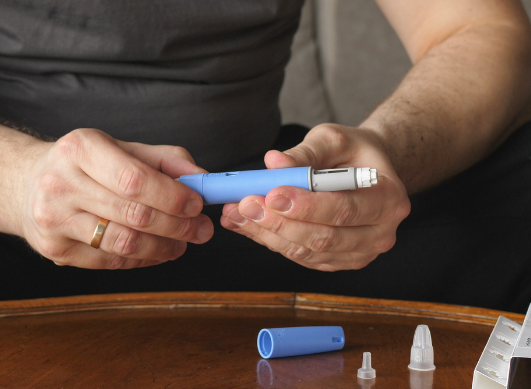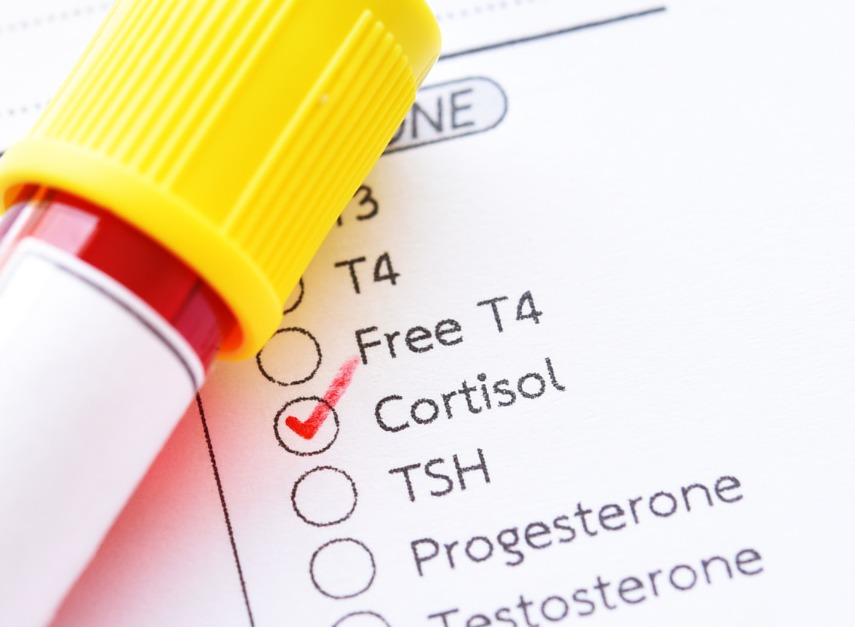Bariatric surgery and weight regain: When should you start worrying?
Published Dec 6, 2021 • By Candice Salomé
Obesity is a chronic condition that requires long-term follow-up. Bariatric surgery can be of great help in the treatment for obesity. However, a number of patients relapse after the surgery and regain weight.
What are the different types of surgery available? Why do some patients regain weight after surgery? What are the risks ? How can patients cope with this?
We tell you everything in our article!

What are the different types of bariatric surgery?
Bariatric surgery, also called weight loss surgery, aims at changing the anatomy of the digestive system. The changes brought about by the surgery provide mechanical and metabolic support to patients, which helps reduce the amount of food consumed (restriction principle) and / or the body's ability to absorb food.
Bariatric surgery serves two main purposes:
- Sustainable weight loss,
- Reducing the risk of obesity-related comorbidities and improving patients' quality of life.
There are two main categories of bariatric surgery: the so-called “purely restrictive” technique and combined (restrictive and malabsorptive) technique.
The goal of purely restrictive surgery is to reduce the size of the stomach and therefore limit the patient's ability to ingest food. There are two types of operations:
- Sleeve gastrectomy: 2/3 of the stomach is removed, in particular, the part of it that secretes ghrelin (appetite-regulating hormone).
- Gastric banding: this technique allows an adjustable band to be placed on the upper part of the stomach, thus slowing the passage of the food bolus. This technique requires a closer post-operative follow-up.
As for the combined technique, it includes gastric restriction and the creation of a bypass in the digestive tract. It connects the upper part of the stomach to the central part of the small intestine, preventing food absorption.
Weight gain after bariatric surgery: What are the triggers?
It is common to experience a slight weight gain a few months after the surgery. However, this weight gain often remains minor compared to the weight lost through surgery.
However, sometimes weight gain is significant.
There are several causes for weight gain after bariatric surgery:
- Unbalanced diet in quantity, as in quality,
- Lack of regular physical activity,
It can also be due to a psychological trauma, gradual decline in motivation or a technical problem, that happened during surgery.
Regular and long-term postoperative follow-up can help identify the causes and reverse the weight gain. The patient should be accompanied by a multidisciplinary team, that can help find a suitable solution and make sure that the dietary recommendations are followed and that the patient stays motivated.
What are the risks of weight regain after bariatric surgery?
Scientists at the University of Pittsburgh have studied the physiological consequences of changes experienced by patients after bariatric surgery. According to their findings, the rate of weight gain was higher during the first year after maximum weight loss, and on average, within two years after surgery.
Additionally, according to a study published in the Journal of the American Medical Association (JAMA), gaining a few pounds after bariatric surgery can result in an increased risk of type 2 diabetes and a general deterioration of the patient's health.
During this study, 1,406 patients operated for their morbid obesity were monitored. In the 6 years following the surgery, the patients were weighed annually.
The results were based on calculations of weight gain. The researchers provided the example of a patient who lost about 70 kg (~155 lbs) and then regained 13 kg (~28 lbs). Thus, the patient regained 19% of his maximum weight lost.
This weight gain was associated with a 51% increased risk of diabetes progression and a 28% higher risk of deterioration of health-related quality of life. High cholesterol and blood pressure were also recorded.
What should you do in order not to regain weight after bariatric surgery?
If weight gain is confirmed, the physician will first try to understand the reasons why the patient has gained body mass.
They will try to find out if the patient's diet has not been balanced enough, and what factors have triggered excessive food consumption. Did it come on suddenly or gradually? What types of food were consumed the most? Are there any eating disorders?
Once the physician has been able to answer all these questions and to determine the exact cause of post-surgical weight gain, he or she will be able to provide the patient with a personalized treatment strategy.
This treatment can range from dietary recommendations to psychological support, but can also include a secondary surgery, if proved necessary.
Dietary recommendations after bariatric surgery
It is recommended to adopt a healthy diet (in terms of both quantity and quality) and to listen to your body.
In case of weight gain following the surgery, the surgeon will check whether the recommendations are being respected:
- No snacking between meals,
- No refined / added sugars, sodas, calorie-rich foods.
Regular physical activity
The patient should gradually and under supervision resume physical activity adapted to people suffering from obesity. Vigorous physical activities, which can cause injuries, are prohibited. So patients can opt for, for example, brisk walking for 45 minutes, 5 times a week.
Make sure it is not a complication of bariatric surgery
Weight gain can also be explained by gastric pouch dilation. Consumption of sodas or food in large quantities, and quickly, causes such expansion.
Several complementary examinations are carried out. If hygiene and dietary rules have been respected, a secondary surgery can be considered in case the first surgery failed, for example:
- Gastric bypass after sleeve gastrectomy,
- Revision of gastric bypass.
This decision should be carefully thought through. The patient will still have to meet specific criteria such as a BMI (Body Mass Index) greater than 35 in case of failure of a surgical technique.
Share your thoughts and your questions with the community in the comments below!
Take care!

 Facebook
Facebook Twitter
Twitter



